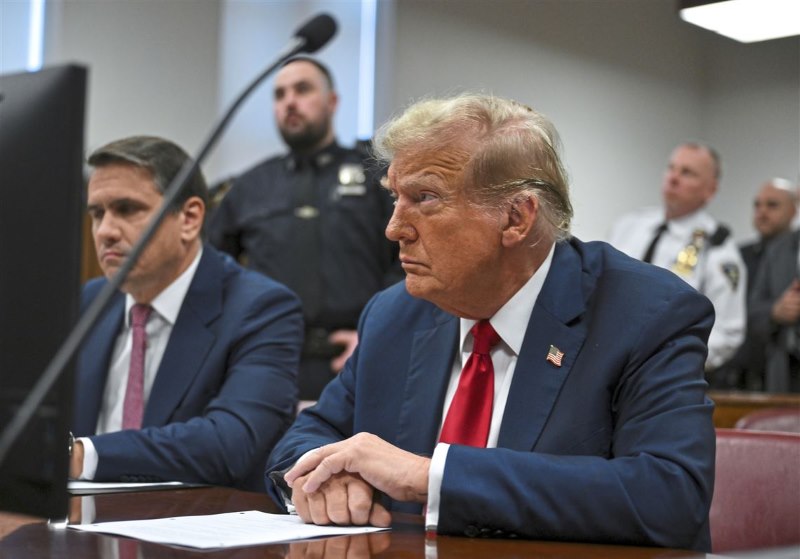Politics
Covert Economic Strategy Unveiled Amid Trump’s Trial
While Donald Trump’s legal battle unfolds in a New York City courthouse, a clandestine network of former advisers is quietly shaping his economic agenda through a series of covert communications and gatherings.
Divergent Proposals Surface
Secretive deliberations unveil conflicting proposals on tariff escalations, China relations, healthcare, and taxation within Trump’s inner circle. Sources suggest advisers aim to influence Trump’s decisions and vie for Cabinet positions if Republicans regain power.
Trump’s Unconventional Approach
Critics, particularly Democrats, have lambasted Trump’s unconventional approach, labeling it as radical. By delegating policy formulation to external counselors, Trump retains the freedom to cherry-pick ideas, sidestepping potentially contentious issues.
Trump’s unconventional approach garners criticism, seen as radical by Democrats; delegation allows selective policy adoption, Barron’s Print Edition said.
Policy Institutes Enter the Fray
Leading conservative think tanks like the Heritage Foundation and America First Policy Institute are actively engaged in crafting economic strategies, positioning themselves as key players in another Trump administration.
Influential Figures Drive Discussions
Key figures from Trump’s previous administration, including Russ Vought and Robert Lighthizer, are deeply involved in shaping policy discussions. Kevin Hassett’s frequent conversations with Trump underscore his pivotal role in advising on economic matters.
Subtle Jockeying for Position
Amidst the policy deliberations, aides from various government departments subtly vie for influential roles in a potential future administration, leveraging their expertise to advocate for policy proposals aligned with their interests.
Campaign’s Cautionary Stance
Susie Wiles and Chris LaCivita, top Trump campaign advisers, stress that only directives from Trump or authorized campaign members are official. They caution against representing unofficial advisers as endorsed by the campaign.
Flexibility Amidst Uncertainty
Trump’s flexibility in adopting economic policies, often showcased during rallies, serves as a strategic advantage for the campaign, allowing them to distance themselves from controversial proposals if needed.
Ongoing Policy Discussions
Despite campaign admonitions, informal discussions persist among the network of advisers, focusing on key economic priorities and agency agendas in the event of Trump’s return to power.
Trade and Energy Dominate Debates
Discussions on trade and energy policies remain contentious, reflecting the longstanding divisions within Trump’s circle. Former aides and industry executives advocate for expedited approvals for drilling permits and pipeline projects.
Tax Cuts and Healthcare Dilemmas
While consensus exists on extending tax cuts, offsetting their cost remains a point of contention. Meanwhile, discussions on healthcare center on extracting savings from Medicaid and Medicare without compromising benefits.
Anticipation of Intensified Discussions
With Trump’s legal challenges temporarily sidelining him, anticipation mounts for intensified policy discussions post-Republican National Convention, led by former White House speechwriter Vince Haley.
As Trump’s trial dominates headlines, his economic advisers’ backstage actions intrigue, shaping US economic policy’s forthcoming trajectory.
Don’t miss out on our exclusive offer for enlightenment and learning. Join our Digital News Duo Deal today, connecting with a community of curious minds relying on The Washington Post and The New York Times for daily wisdom. Let’s explore the evolving news landscape together.

